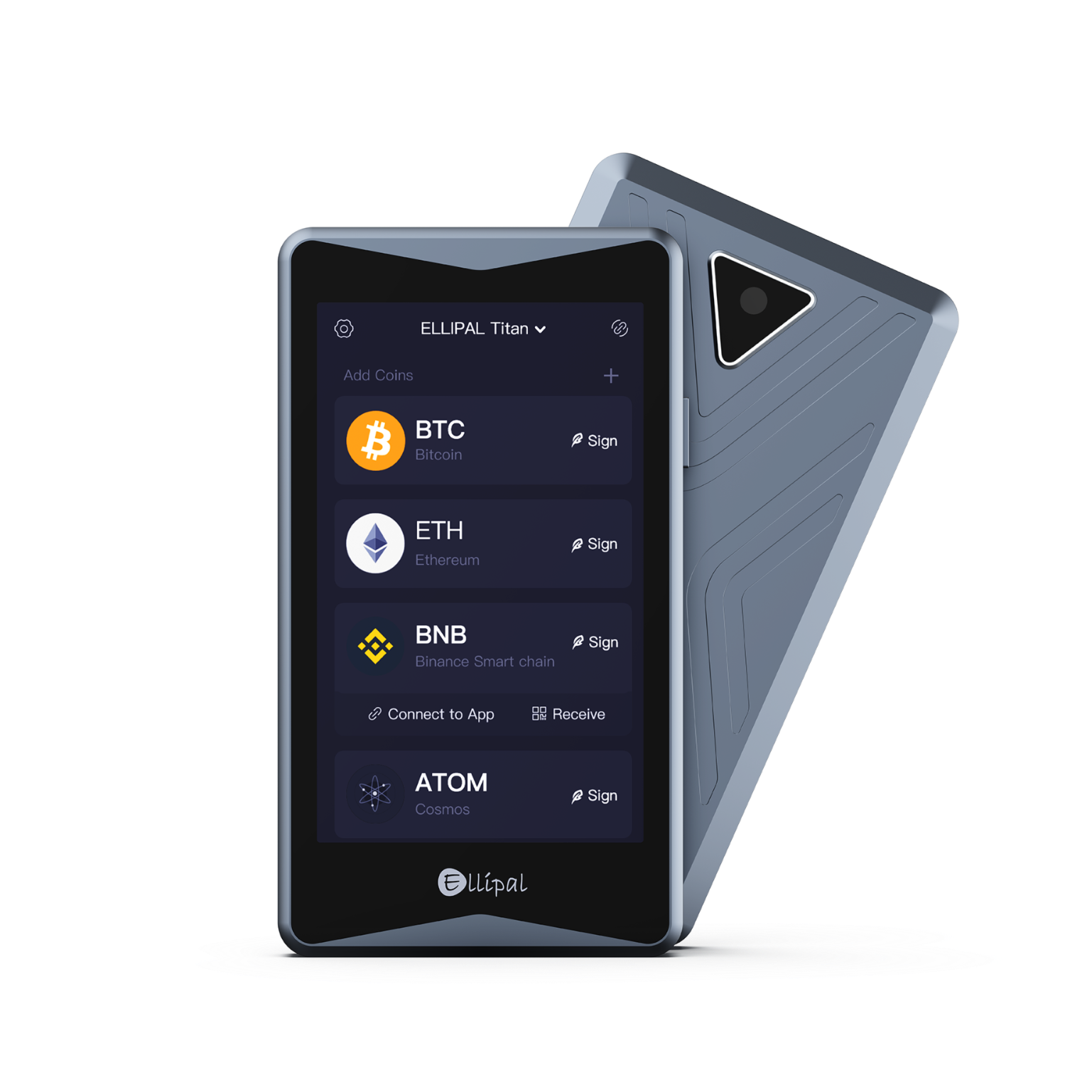Cryptocurrency Prices by Coinlib

Greatest {Hardware} Wallets for Cross-Chain Bridge Safety – ELLIPAL
Introduction
The power to switch belongings throughout numerous blockchains – suppose transferring your tokens from Ethereum to Solana, or Binance Sensible Chain to Polygon – is a cornerstone of the evolving Web3 panorama. Cross-chain bridges facilitate this, however they've additionally develop into prime targets for hackers. Securing these multi-chain transactions is paramount, and some of the sturdy instruments in our arsenal is the common-or-garden {hardware} pockets.
What Are Cross-Chain Bridges and Their Inherent Dangers?
First, what precisely is a cross-chain bridge? In easy phrases, it is a protocol that permits you to switch tokens or information from one blockchain community to a different. This often entails locking up an asset on the supply chain after which minting a “wrapped” or artificial model of that asset on the vacation spot chain. While you need to return, the wrapped asset is burned, and the unique asset is unlocked.
The issue is that these bridges typically maintain huge quantities of locked belongings, making them extremely enticing targets. We have seen quite a few high-profile bridge hacks leading to tons of of tens of millions, typically billions, of {dollars} misplaced. These exploits can occur on account of smart contract vulnerabilities within the bridge itself, compromised validator keys, or different assault vectors. The complexity of those techniques introduces a number of potential factors of failure.

How Can {Hardware} Wallets Assist in Enhancing Safety
That is the place hardware wallets step in as a essential layer of protection. A {hardware} pockets is a bodily system that shops your non-public keys offline, utterly remoted out of your internet-connected laptop or smartphone. While you need to authorize a transaction, you join the {hardware} pockets, and the transaction is signed within the secure environment of the system itself. Your non-public keys by no means depart the {hardware} pockets.
This offline signing mechanism is essential. Even when your laptop is riddled with malware or keyloggers, your non-public keys stay secure. The malware cannot entry them as a result of they aren't saved on the pc. This considerably reduces the chance of your keys being stolen, which is a major approach attackers acquire management of funds.
How {Hardware} Wallets Shield Multi-Chain Transactions through Bridges
While you work together with a cross-chain bridge, you are sometimes signing transactions to approve the bridge contract to work together together with your tokens, after which one other transaction to provoke the switch. In the event you're doing this with a software program pockets (like a browser extension), a compromised laptop may result in a malicious contract being permitted, or your transaction particulars being altered to ship funds to an attacker's tackle.
Using a hardware wallet for these multi-chain operations implies that each essential step – each approval and each switch initiation – have to be bodily confirmed on the system. You will see the transaction particulars displayed on the {hardware} pockets's display (e.g., the contract tackle you are interacting with, the quantity being despatched). You then bodily press buttons on the system to approve or reject it. This supplies a important “human firewall” in opposition to many kinds of assaults.

Greatest Practices for Utilizing {Hardware} Wallets with Cross-Chain Bridges
Merely proudly owning a {hardware} pockets is not sufficient; you must use it appropriately, particularly when navigating the complexities of cross-chain bridges.
- Confirm Transaction Particulars: At all times meticulously test the transaction particulars displayed in your {hardware} pockets's display earlier than confirming. Make sure the contract tackle, the asset being transferred, and the vacation spot tackle (if relevant for the bridge's mechanism) match what you count on. Do not blindly approve.
- Watch out for Malicious Approvals: One frequent assault vector is tricking customers into approving limitless token spending for a malicious good contract. Your {hardware} pockets will present you what permissions you might be granting. Be extraordinarily cautious with approvals, particularly from unfamiliar bridge platforms.
- Use Respected Bridges: Keep on with well-audited and established cross-chain bridges. Whereas no bridge is solely risk-free, these with a robust safety monitor file and a number of audits are typically safer. Do your personal analysis.
- Safe Your Seed Phrase: The seed phrase (recovery phrase) to your {hardware} pockets is the grasp key to all of your belongings throughout all chains. Retailer it offline in a number of safe places. By no means sort it into any laptop or web site.
- Maintain Firmware Up to date: {Hardware} pockets producers repeatedly launch firmware updates to patch vulnerabilities and add new options. Guarantee your system's firmware is updated.
Limitations and Further Safety Measures
Whereas {hardware} wallets considerably improve safety, they aren't a silver bullet in opposition to all bridge-related dangers. The first safety they provide is to your non-public keys and the integrity of the transactions you provoke.
They can't shield you if the bridge protocol itself has a basic good contract vulnerability that will get exploited, resulting in a drain of the bridge's liquidity pool. Your belongings is perhaps secure in your pockets, however the “wrapped” belongings on the opposite chain may develop into nugatory if the underlying locked belongings are stolen from the bridge.
Due to this fact, along with utilizing a {hardware} pockets, think about diversifying your publicity throughout a number of bridges if you're transferring vital worth, and pay attention to the particular dangers related to every bridge you utilize. Understanding the bridge's safety mannequin (e.g., who controls the locked belongings, how validators function) can also be vital for superior customers.

Conclusion
Cross-chain bridges are important for the expansion and interoperability of the blockchain ecosystem. Nevertheless, their safety stays a major concern. By utilizing a {hardware} pockets to handle your non-public keys and authorize multi-chain transactions, you add a strong layer of private safety, defending your belongings from a variety of frequent assaults. It’s a basic step for anybody severe about navigating the DeFi space safely.
